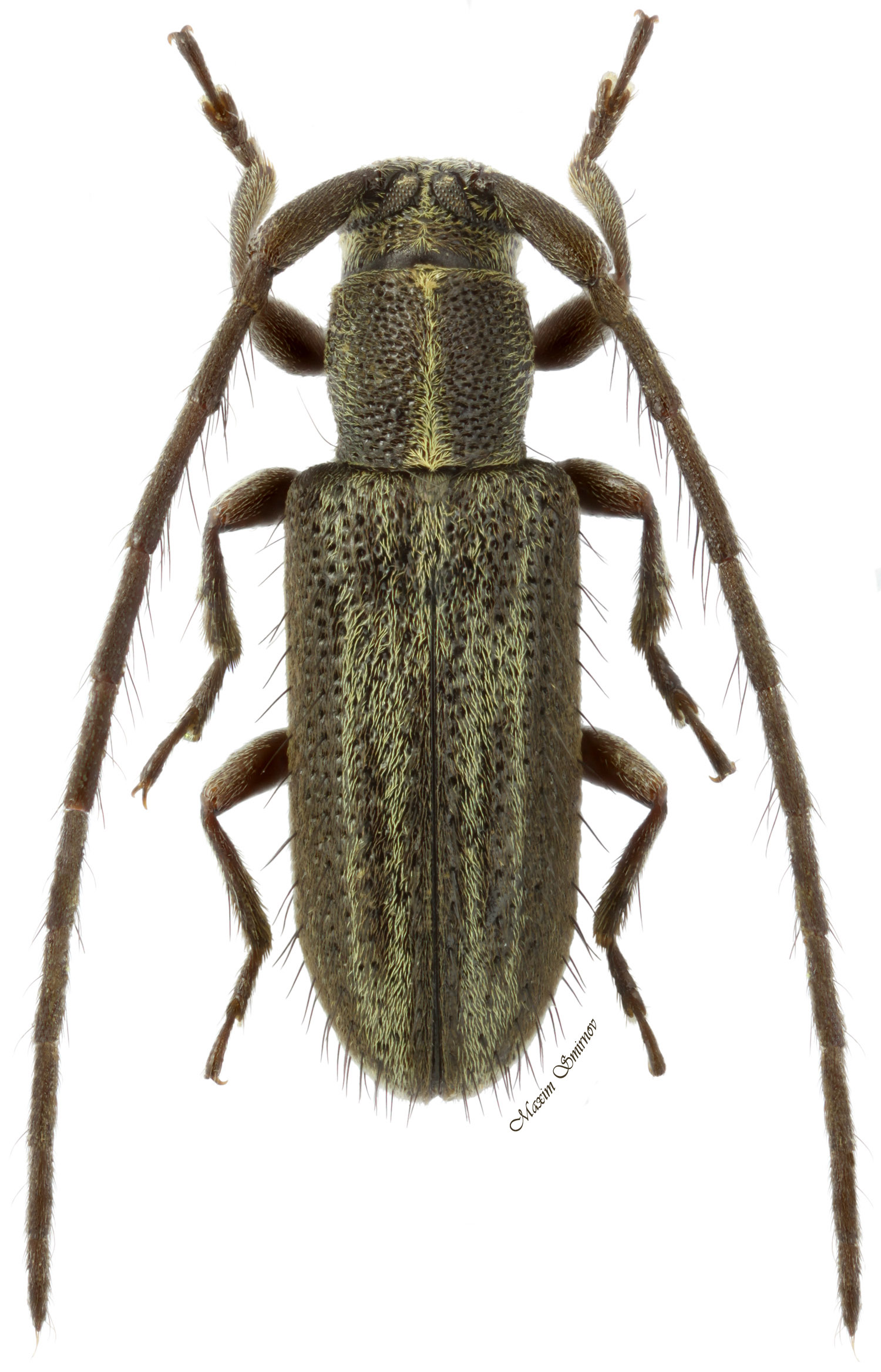| Author |
 Topic Topic  |
|
|
Max
Member Rosalia
  
Russia
721 Posts |
 Posted - 27/06/2024 : 12:27:08 Posted - 27/06/2024 : 12:27:08



|
Tiny creature (3,4 mm) not dissected but male as I believe.
I like the idea about Amphicnaeia pusilla Bates, 1866
from Peru, Junin dep. Satipo reg., Rio Venado env., X.2017 A. Sokolov leg.

483.66 KB |
|
|
Larry Bezark
Member Macrodontia
    
USA
2238 Posts |
 Posted - 27/06/2024 : 18:12:29 Posted - 27/06/2024 : 18:12:29



|
Max,
This might also be be A. albovittatus Breuning, however as we stated in our 2020 paper "Note 1. A. albovittata Breuning, 1971, and A. flavescens Martins & Galileo, 1999 are not included in the key. The original
descriptions and photographs of the holotypes do not allow us to be sure about their identity.
Larry B. |
 |
|
|
Max
Member Rosalia
  
Russia
721 Posts |
 Posted - 27/06/2024 : 21:40:22 Posted - 27/06/2024 : 21:40:22



|
Thanks Larry
I`m not sure too. All keys on this genus are based on coloration patterns. But the limits of pattern variability are often unclear, and there are no other features. So It will be more helpful to study images of the types really. In my view albovittata\flavescens are truly similar to my beetle but have a large apical tomented area on elytra. How steady (and important) it is, I don't know certainly. |
 |
|
| |
 Topic Topic  |
|
|
|


